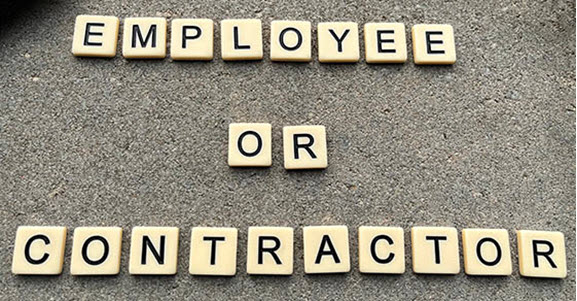The IRS recently announced various inflation-adjusted federal income tax amounts. Here’s a rundown of the amounts that are most likely to affect small businesses and their owners.
Rates and brackets
If you run your business as a sole proprietorship or pass-through business entity (LLC, partnership or S corporation), the business’s net ordinary income from operations is passed through to you and reported on your personal Form 1040. You then pay the individual federal income tax rates on that income.
Here are the 2024 inflation adjusted bracket thresholds.
- 10% tax bracket: $0 to $11,600 for singles, $0 to $23,200 for married joint filers, $0 to $16,550 for heads of household;
- Beginning of 12% bracket: $11,601 for singles, $23,201 for married joint filers, $16,551 for heads of household;
- Beginning of 22% bracket: $47,151 for singles, $94,301 for married joint filers, $63,101 for heads of household;
- Beginning of 24% bracket: $100,526 for singles, $201,051 for married joint filers, $100,501 for heads of household;
- Beginning of 32% bracket: $191,951 for singles, $383,901 for married joint filers, $191,951 for heads of household;
- Beginning of 35% bracket: $243,726 for singles, $487,451 for married joint filers and $243,701 for heads of household; and
- Beginning of 37% bracket: $609,351 for singles, $731,201 for married joint filers and $609,351 for heads of household.
Key Point: These thresholds are about 5.4% higher than for 2023. That means that, other things being equal, you can have about 5.4% more ordinary business income next year without owing more to Uncle Sam.
Section 1231 gains and qualified dividends
If you run your business as a sole proprietorship or a pass-through entity, and the business sells assets, you may have Section 1231 gains that passed through to you to be included on your personal Form 1040. Sec. 1231 gains are long-term gains from selling business assets that were held for more than one year, and they’re generally taxed at the same lower federal rates that apply to garden-variety long-term capital gains (LTCGs), such as stock sale gains. Here are the 2024 inflation-adjusted bracket thresholds that will generally apply to Sec. 1231 gains recognized by individual taxpayers.
- 0% tax bracket: $0 to $47,025 for singles, $0 to $94,050 for married joint filers and $0 to $63,000 for heads of household;
- Beginning of 15% bracket: $47,026 for singles, $94,051 for joint filers, $63,001 for heads of household; and
- Beginning of 20% bracket: $518,901 for singles, $583,751 for married joint filers and $551,351 for heads of household.
If you run your business as a C corporation, and the company pays you qualified dividends, they’re taxed at the lower LTCG rates. So, the 2024 rate brackets for qualified dividends paid to individual taxpayers will be the same as above.
Self-employment tax
If you operate your business as a sole proprietorship or as a pass-through entity, you probably have net self-employment (SE) income that must be reported on your personal Form 1040 to calculate your SE tax liability. For 2024, the maximum 15.3% SE tax rate will apply to the first $166,800 of net SE income (up from $160,200 for 2023).
Section 179 deductions
For tax years beginning in 2024, small businesses can potentially write off up to $1,220,000 of qualified asset additions in year one (up from $1,160,000 for 2023). However, the maximum deduction amount begins to be phased out once qualified asset additions exceed $3,050,000 (up from $2,890,000 for 2023). Various limitations apply to Sec. 179 deductions.
Side Note: Under the first-year bonus depreciation break, you can deduct up to 60% of the cost of qualified asset additions placed in service in calendar year 2024. For 2023, you could deduct up to 80%.
Just the beginning
These are only the 2024 inflation-adjusted amounts that are most likely to affect small businesses and their owners. There are others that may potentially apply, including: limits on qualified business income deductions and business loss deductions, income limits on various favorable exceptions such as the right to use cash-method accounting, limits on how much you can contribute to your self-employed or company-sponsored tax-favored retirement account, limits on tax-free transportation allowances for employees, and limits on tax-free adoption assistance for employees. Contact us with questions about your situation.
© 2023






